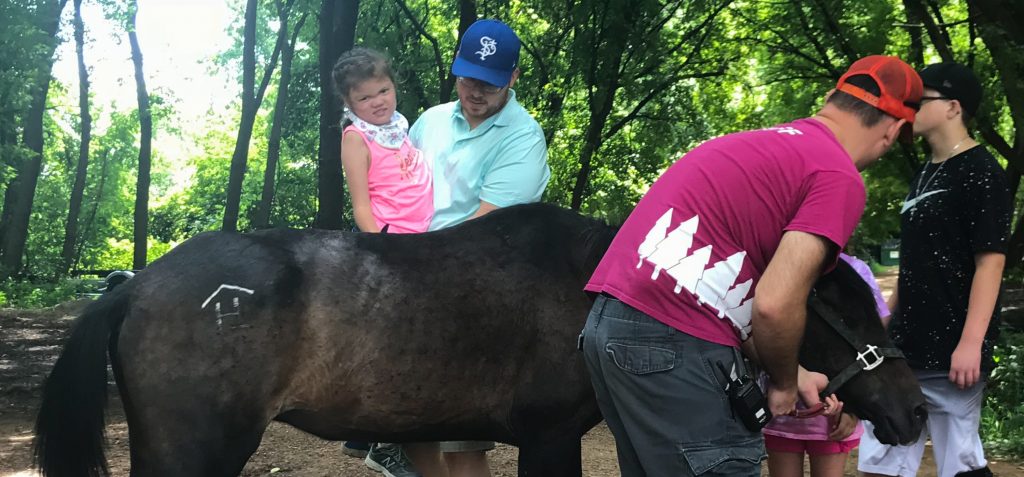Caregivers play many roles in the lives of loved ones. For parents who have a child with epilepsy, it ranges from giving medication to working with their school, and yes, taking rides down the “black hole” slide at Family Camp each summer.
Meela Keobounpheng, along with her parents Talia and Daniel, have been managing a changing epilepsy diagnosis for the past nine years. Initially, it meant delayed milestones like walking and speaking, and now as an 11-year-old, Meela’s epilepsy has evolved to Lennox-Gastaut Syndrome (LGS).
“One of the hallmarks of LGS is the presence of drop seizures. That has been one of the hardest things to deal with in the last two years. She can no longer stand without someone with her for fear that at any moment, she could have a seizure and fall to the floor. In many ways, we feel that Meela is losing some of her independence, and we do have a lot of anxiety about what the future may hold for her,” says her mom Talia.
Meela’s safety is always accounted for, currently working one-on-one with a paraprofessional at school who knows how to respond when she has a seizure. Making it all the more important, and joyful, when they attend events specifically for Meela.
“It can be very difficult to get Meela out to have fun in a world that at times seems it was not designed to accommodate her needs. At EFMN’s Family Camp, we get to go rock climbing, take multiple rides down the big “black hole” slide, and socialize with other people and families who live with epilepsy. We are grateful that Meela has the opportunity to have some fun in an environment that was created with her unique needs in mind,” says her dad Daniel.
Creating personalized plans to fit Meela’s specific needs are a big part of her life. And it leads to big milestones, one of which happened just this past year.
“Meela is non-verbal and has shown a lot of growth in the last year with her ability to communicate. She has a smartboard at school and has been working with a speech therapist every day to help her use it. It can be tough for her to use, she does not have the best fine motor control, but she is finding her voice and learning how to express herself through her tablet,” says Talia.
This moment of growth opens new possibilities in Meela’s life. And it also caused Talia and Daniel to reflect on the bond the three of them continue to develop during their journey.
“It can be difficult to figure out what she wants or needs, but we do know her really well. That feeling of unspoken, shared understanding is also one of the most enjoyable parts about caring for Meela.”
The challenges and victories they experience as a family lead to lessons they share with other parents and caregivers.
“Work on accepting the reality of the diagnosis. This takes time. It takes patience, and many times it takes outside help. If you can learn how to accept and become educated on what is happening with your child, it becomes easier to feel confident about creating a plan,” says Daniel.
This includes advice that can be hard for Talia to follow herself. But, it remains important to remember that caregivers have a community around them.
“No one can do it alone, and though I feel guilty at times asking for help, it is important to remember that it’s not a failure. Her teachers, grandparents, and everyone in our circle comes together to make sure Meela has opportunities to grow and have fun. Many times, people don’t know what you need, so asking them or giving some direction can go a long way in building a supportive community around you.” says Talia.
